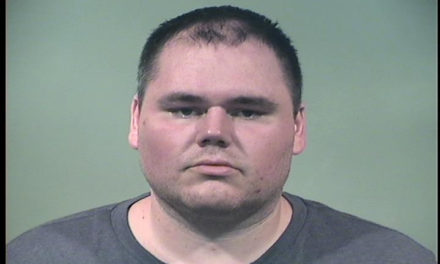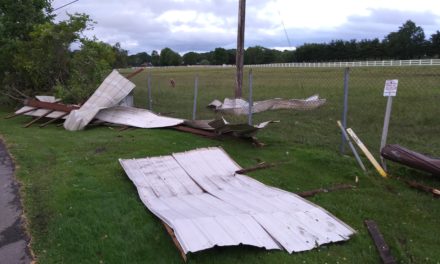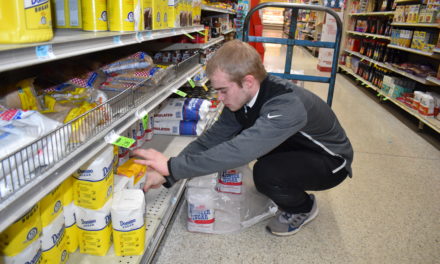Rob Boulware said he has considered attending a meeting held by Brookfield injection well opponents, but has concluded nothing could be accomplished.
“They just don’t want it,” he said of the wells.
Boulware is a spokesman for Highland Field Services LLC, which is building two injection wells on property in Brookfield and has applied for permission to build three more on the same parcel. He said people need to look at the issue dispassionately, based on facts.
The facts point to this: “It is a safe means of disposal,” he said.
The wells would dispose of the water used and generated during the drilling process, Boulware said. Some of that water comes up through the drilling hole naturally from deep within the earth. Some of it is water that is mixed with sand and chemicals to smash shale underground, the process known as fracking.
The water contains amounts of the minerals found underground and some it includes what is known as naturally occurring radioactive material, Boulware said. But, the amount of radioactivity is so small that the average person is exposed to more radioactivity in their home than at an injection well site.
The chemical contents of the water are governed by the U.S. Clean Water Act and must be “clean, per se” before it can be put into the ground, Boulware said.
Highland reuses the water from well to well whenever possible, but a number of factors, including economics and opposition, have resulted in fewer wells being drilled, he said.
“When you can’t reuse that water, you have to seek out other options, which includes disposal,” Boulware said.
The amount of water injected is governed by the permits issued by the Ohio Department of Natural Resources, and Highland is proposing injecting 5,000 to 10,000 barrels a day in each well. The delivery trucks will be of various sizes but, with an estimate of 25 trucks a day serving the two approved wells, which have not been built, the Brookfield property probably would see no more than 65 trucks a day, Boulware said.
Speculation that there could be 100 or more trucks a day would amount to volumes above what would be permitted, he said.
“Injection wells are limited by volume, not by number of wells,” Boulware said.
Concerning fears that the trucks would gum up traffic on Route 7 and slow response time for Brookfield Fire Department, which has its station just south of the well site, Boulware said, “Why they believe that Highland Field’s water trucks wouldn’t move out of the way (for emergency vehicles) is beyond me,” he said.
Yes, Boulware said, it is likely that the drilling will go through drinking water sources, but modern techniques do not contaminate the water. The layers of steel and cement used to case the well keeps any contaminants from the injected water from getting into the source drinking water, he said.
Responding to complaints about the noise of construction vehicles at the well site, Boulware said it is the same type of equipment used by loggers when the property was timbered before Highland bought it.
“The noise would have been the same while it was being timbered,” he said.
Trumbull County has “the geology that’s suitable for injection wells,” Boulware said, referring to the sandstone layer about a mile and a half down, which is sandwiched between bedrock layers.
Many of the earthquakes associated with injection wells were the results of drilling into bedrock that was laid down during the PreCambrian era of geologic time, including the Northstar 1 well site in Youngstown, Boulware said. ODNR has changed regulations so that drilling into that bedrock is not allowed. The Brookfield wells are proposed to empty into a softer, Cambrian rock that is not as deep.
“That helps alleviate potential pressure on any fault that might exist at that depth,” Boulware said.









